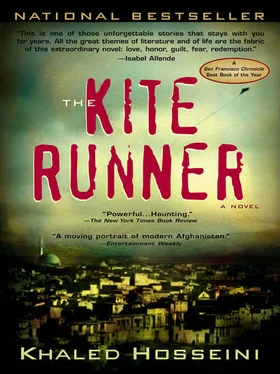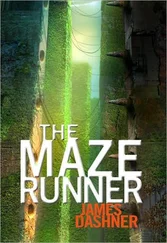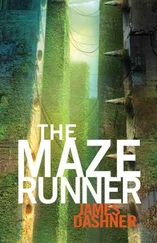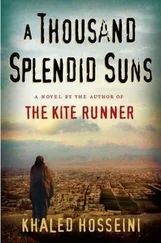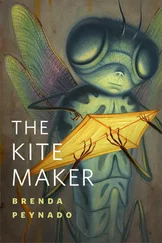One overcast morning, as I was pushing the boiled egg around on my plate, Ali walked in cradling a pile of chopped wood. I asked him where Hassan was.
“He went back to sleep,” Ali said, kneeling before the stove. He pulled the little square door open.
Would Hassan be able to play today?
Ali paused with a log in his hand. A worried look crossed his face. “Lately, it seems all he wants to do is sleep. He does his chores – I see to that – but then he just wants to crawl under his blanket. Can I ask you something?”
“If you have to.”
“After that kite tournament, he came home a little bloodied and his shirt was torn. I asked him what had happened and he said it was nothing, that he’d gotten into a little scuffle with some kids over the kite.”
I didn’t say anything. Just kept pushing the egg around on my plate.
“Did something happen to him, Amir agha? Something he’s not telling me?”
I shrugged. “How should I know?”
“You would tell me, nay? Inshallah , you would tell me if something had happened?”
“Like I said, how should I know what’s wrong with him?” I snapped. “Maybe he’s sick. People get sick all the time, Ali. Now, am I going to freeze to death or are you planning on lighting the stove today?”
THAT NIGHT I asked Baba if we could go to Jalalabad on Friday. He was rocking on the leather swivel chair behind his desk, reading a newspaper. He put it down, took off the reading glasses I disliked so much – Baba wasn’t old, not at all, and he had lots of years left to live, so why did he have to wear those stupid glasses?
“Why not!” he said. Lately, Baba agreed to everything I asked. Not only that, just two nights before, he ’d asked me if I wanted to see El Cid with Charlton Heston at Cinema Aryana. “Do you want to ask Hassan to come along to Jalalabad?”
Why did Baba have to spoil it like that? “He’s mareez ,” I said. Not feeling well.
“Really?” Baba stopped rocking in his chair. “What’s wrong with him?”
I gave a shrug and sank in the sofa by the fireplace. “He’s got a cold or something. Ali says he’s sleeping it off.”
“I haven’t seen much of Hassan the last few days,” Baba said. “That’s all it is, then, a cold?” I couldn’t help hating the way his brow furrowed with worry.
“Just a cold. So are we going Friday, Baba?”
“Yes, yes,” Baba said, pushing away from the desk. “Too bad about Hassan. I thought you might have had more fun if he came.”
“Well, the two of us can have fun together,” I said.
Baba smiled. Winked. “Dress warm,” he said.
IT SHOULD HAVE BEEN just the two of us – that was the way I wanted it – but by Wednesday night, Baba had managed to invite another two dozen people. He called his cousin Homayoun – he was actually Baba’s second cousin – and mentioned he was going to Jalalabad on Friday, and Homayoun, who had studied engineering in France and had a house in Jalalabad, said he’d love to have everyone over, he’d bring the kids, his two wives, and, while he was at it, cousin Shafiqa and her family were visiting from Herat, maybe she’d like to tag along, and since she was staying with cousin Nader in Kabul, his family would have to be invited as well even though Homayoun and Nader had a bit of a feud going, and if Nader was invited, surely his brother Faruq had to be asked too or his feelings would be hurt and he might not invite them to his daughter’s wedding next month and…
We filled three vans. I rode with Baba, Rahim Khan, Kaka Homayoun – Baba had taught me at a young age to call any older male Kaka , or Uncle, and any older female, Khala , or Aunt. Kaka Homayoun’s two wives rode with us too – the pinch-faced older one with the warts on her hands and the younger one who always smelled of perfume and danced with her eyes close – as did Kaka Homayoun’s twin girls. I sat in the back row, carsick and dizzy, sandwiched between the seven-year-old twins who kept reaching over my lap to slap at each other. The road to Jalalabad is a two-hour trek through mountain roads winding along a steep drop, and my stomach lurched with each hairpin turn. Everyone in the van was talking, talking loudly and at the same time, nearly shrieking, which is how Afghans talk. I asked one of the twins – Fazila or Karima, I could never tell which was which – if she’d trade her window seat with me so I could get fresh air on account of my car sickness. She stuck her tongue out and said no. I told her that was fine, but I couldn’t be held accountable for vomiting on her new dress. A minute later, I was leaning out the window. I watched the cratered road rise and fall, whirl its tail around the mountainside, counted the multicolored trucks packed with squatting men lumbering past. I tried closing my eyes, letting the wind slap at my cheeks, opened my mouth to swallow the clean air. I still didn’t feel better. A finger poked me in the side. It was Fazila/Karima.
“What?” I said.
“I was just telling everyone about the tournament,” Baba said from behind the wheel. Kaka Homayoun and his wives were smiling at me from the middle row of seats.
“There must have been a hundred kites in the sky that day?” Baba said. “Is that about right, Amir?”
“I guess so,” I mumbled.
“A hundred kites, Homayoun jan. No laaf . And the only one still flying at the end of the day was Amir’s. He has the last kite at home, a beautiful blue kite. Hassan and Amir ran it together.”
“Congratulations,” Kaka Homayoun said. His first wife, the one with the warts, clapped her hands. “Wah wah, Amir jan, we’re all so proud of you!” she said. The younger wife joined in. Then they were all clapping, yelping their praises, telling me how proud I’d made them all. Only Rahim Khan, sitting in the passenger seat next to Baba, was silent. He was looking at me in an odd way.
“Please pull over, Baba,” I said.
“What?”
“Getting sick,” I muttered, leaning across the seat, pressing against Kaka Homayoun’s daughters.
Fazila/Karima’s face twisted. “Pull over, Kaka! His face is yellow! I don’t want him throwing up on my new dress!” she squealed.
Baba began to pull over, but I didn’t make it. A few minutes later, I was sitting on a rock on the side of the road as they aired out the van. Baba was smoking with Kaka Homayoun who was telling Fazila/Karima to stop crying; he’d buy her another dress in Jalalabad. I closed my eyes, turned my face to the sun. Little shapes formed behind my eyelids, like hands playing shadows on the wall. They twisted, merged, formed a single image: Hassan’s brown corduroy pants discarded on a pile of old bricks in the alley.
KAKA HOMAYOUN’S WHITE, two-story house in Jalalabad had a balcony overlooking a large, walled garden with apple and persimmon trees. There were hedges that, in the summer, the gardener shaped like animals, and a swimming pool with emerald-colored tiles. I sat on the edge of the pool, empty save for a layer of slushy snow at the bottom, feet dangling in. Kaka Homayoun’s kids were playing hide-and-seek at the other end of the yard. The women were cooking and I could smell onions frying already, could hear the phht-phht of a pressure cooker, music, laughter. Baba, Rahim Khan, Kaka Homayoun, and Kaka Nader were sitting on the balcony, smoking. Kaka Homayoun was telling them he’d brought the projector along to show his slides of France. Ten years since he’d returned from Paris and he was still showing those stupid slides.
It shouldn’t have felt this way. Baba and I were finally friends. We’d gone to the zoo a few days before, seen Marjan the lion, and I had hurled a pebble at the bear when no one was watching. We’d gone to Dadkhoda’s Kabob House afterward, across from Cinema Park, had lamb kabob with freshly baked naan from the tandoor . Baba told me stories of his travels to India and Russia, the people he had met, like the armless, legless couple in Bombay who’d been married forty-seven years and raised eleven children. That should have been fun, spending a day like that with Baba, hearing his stories. I finally had what I’d wanted all those years. Except now that I had it, I felt as empty as this unkempt pool I was dangling my legs into.
Читать дальше
